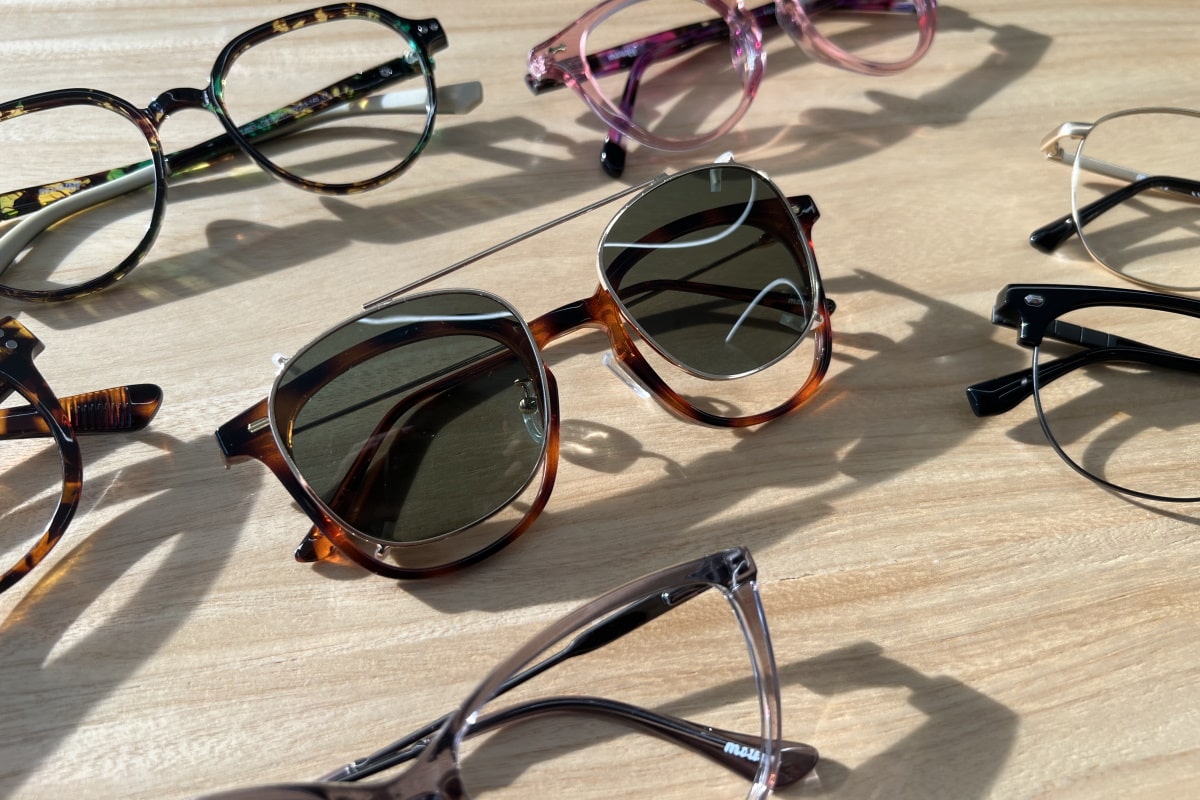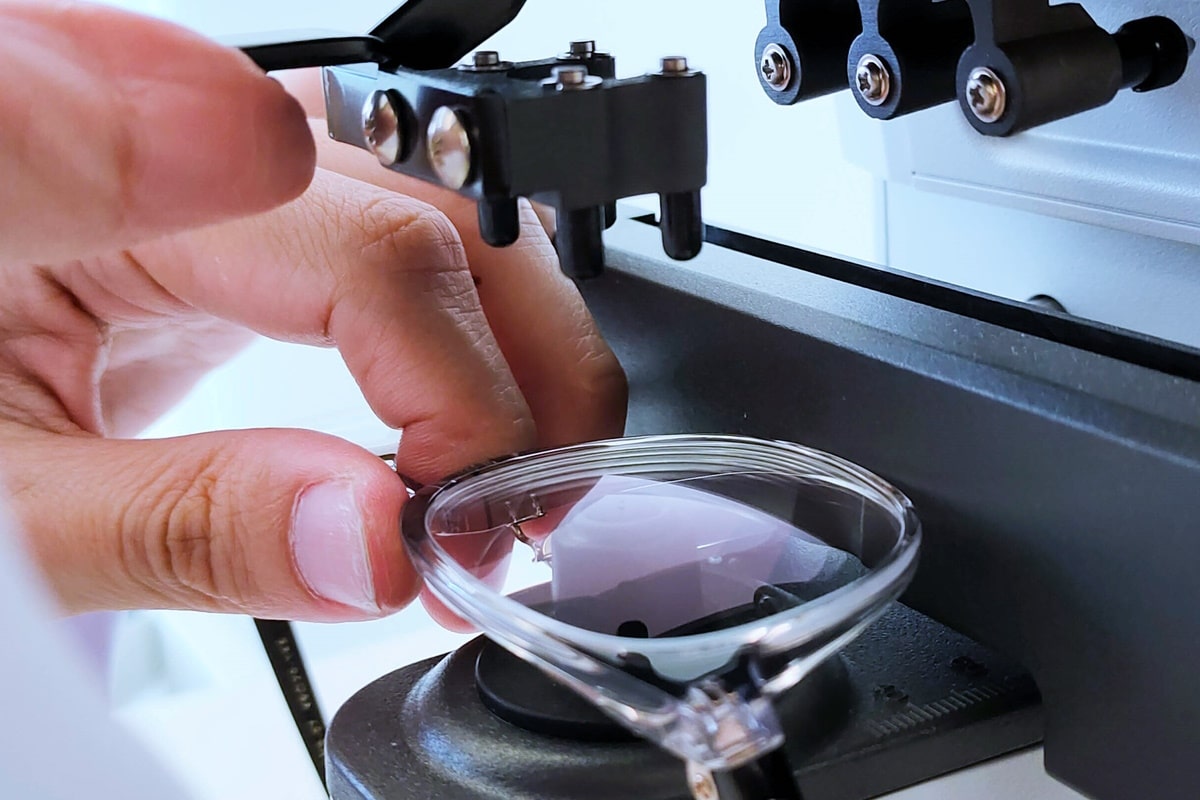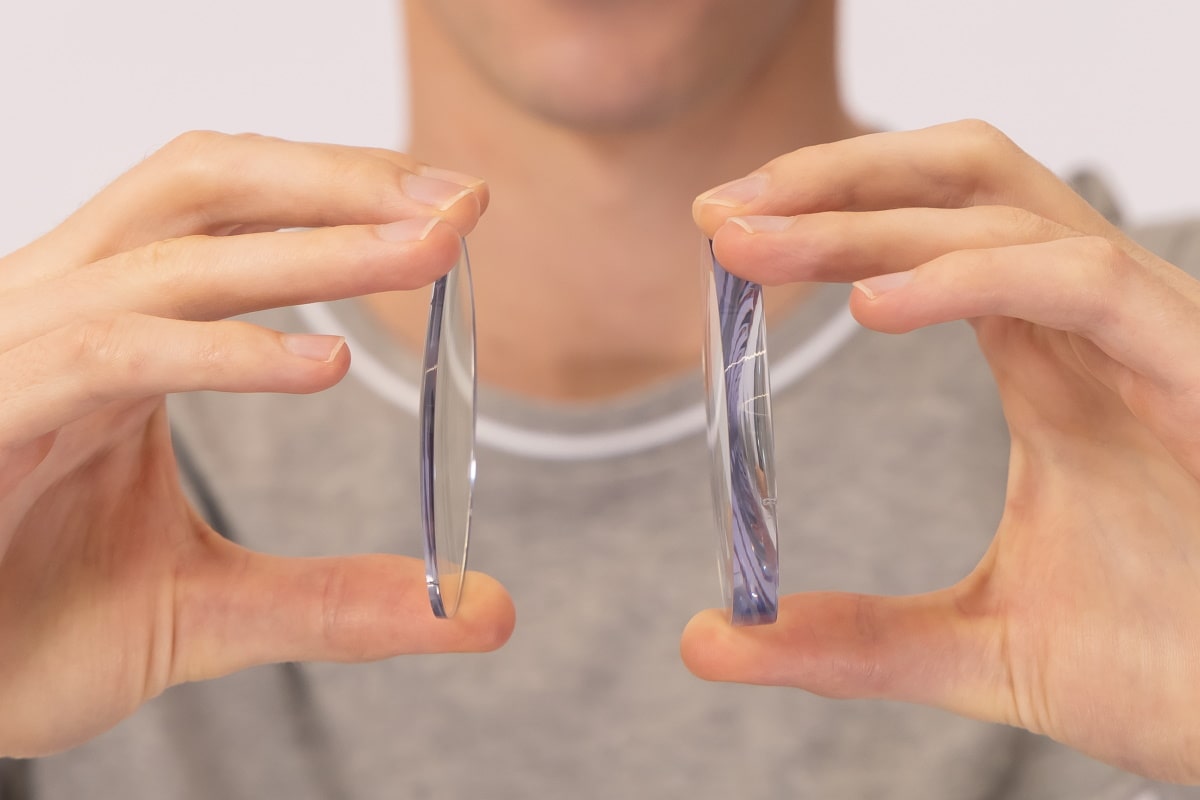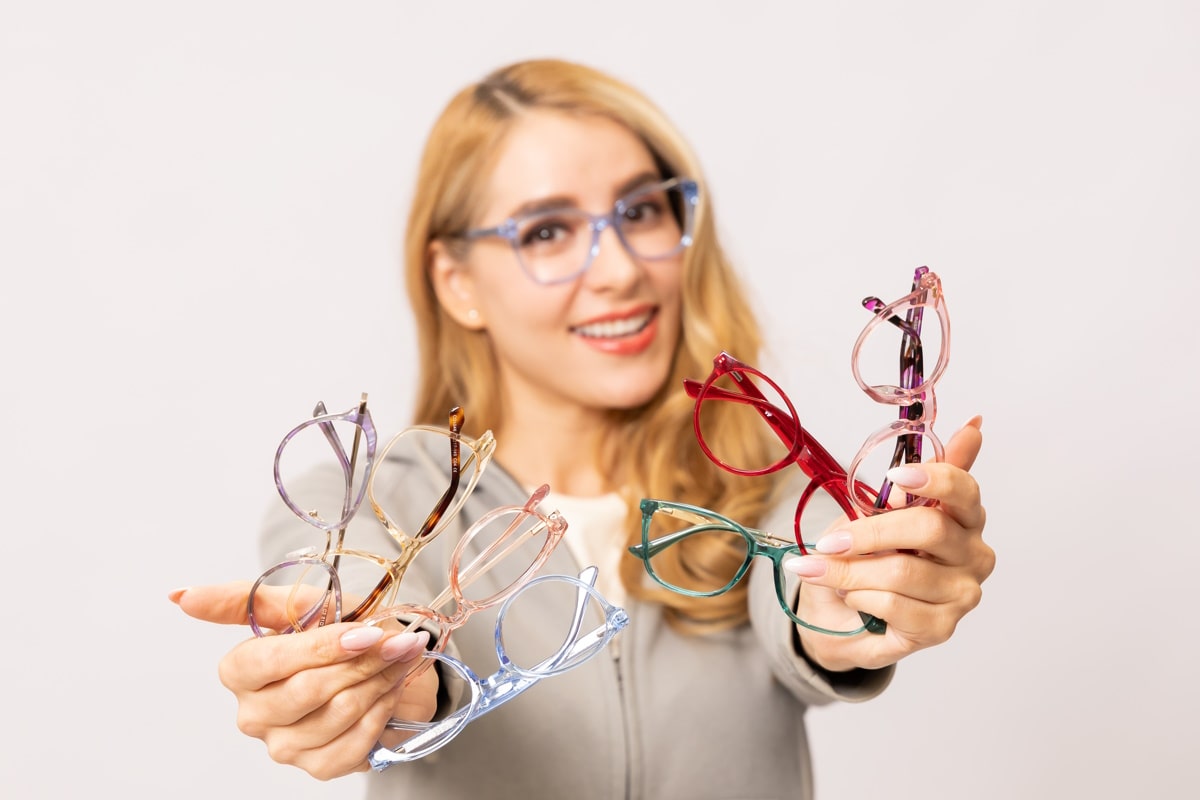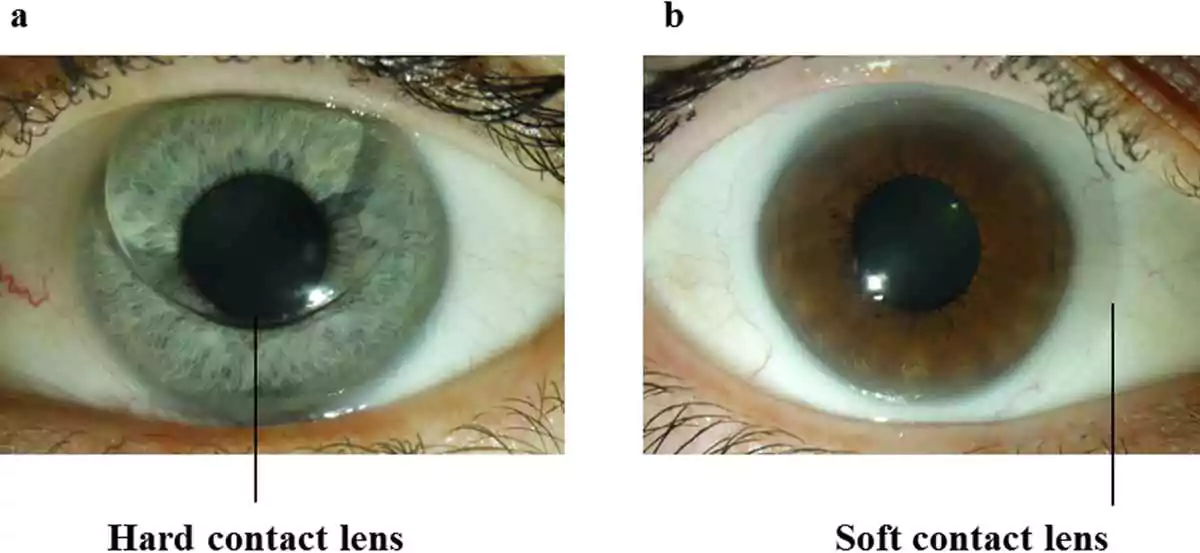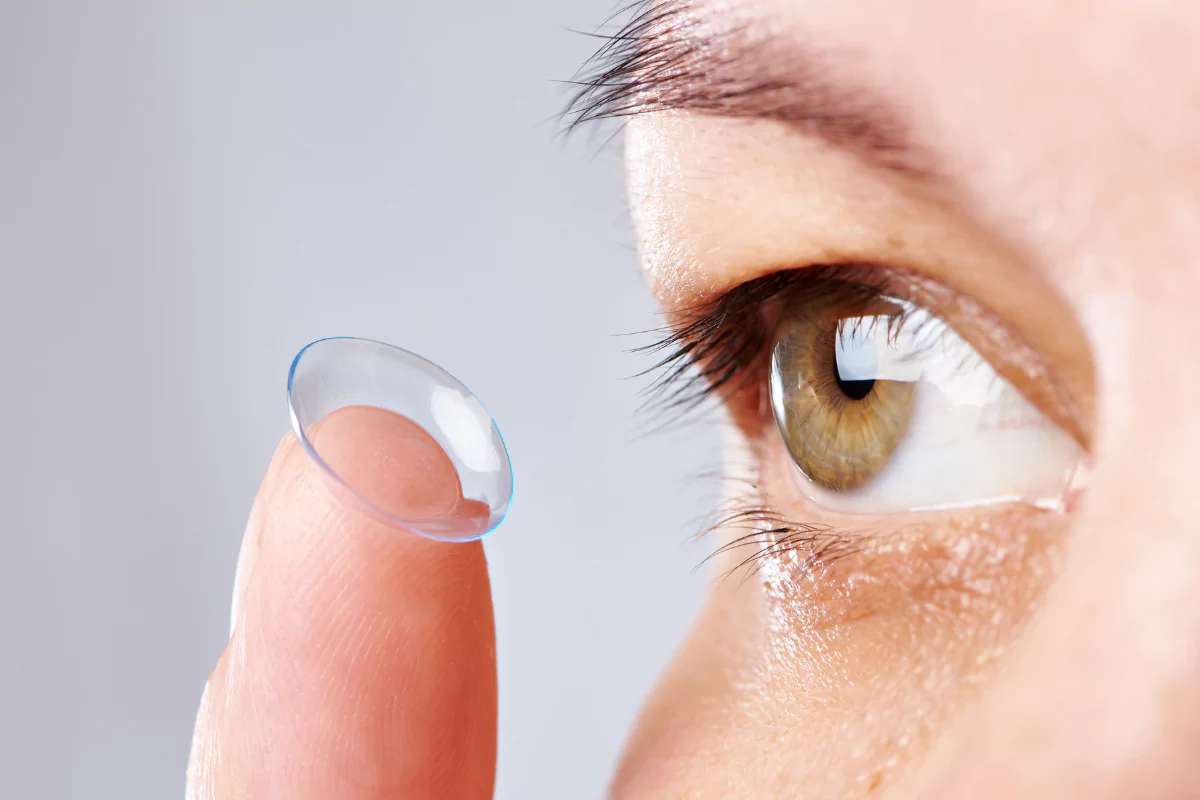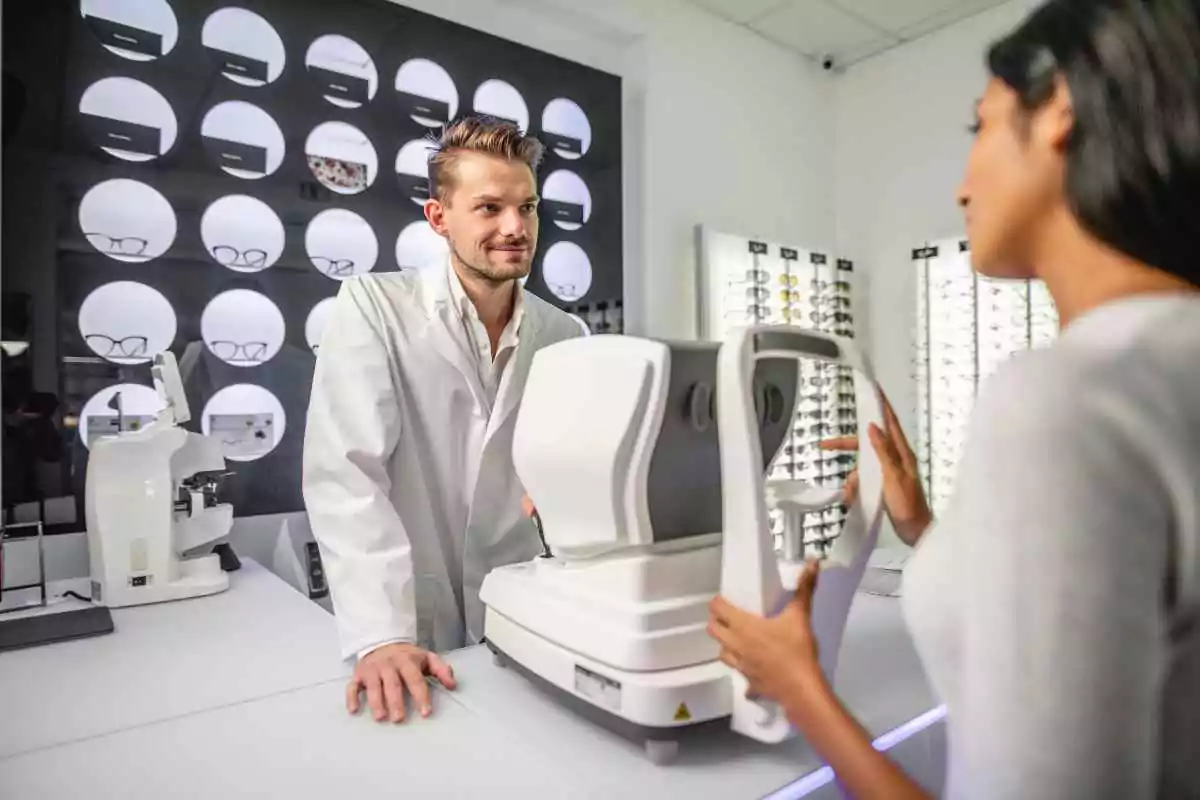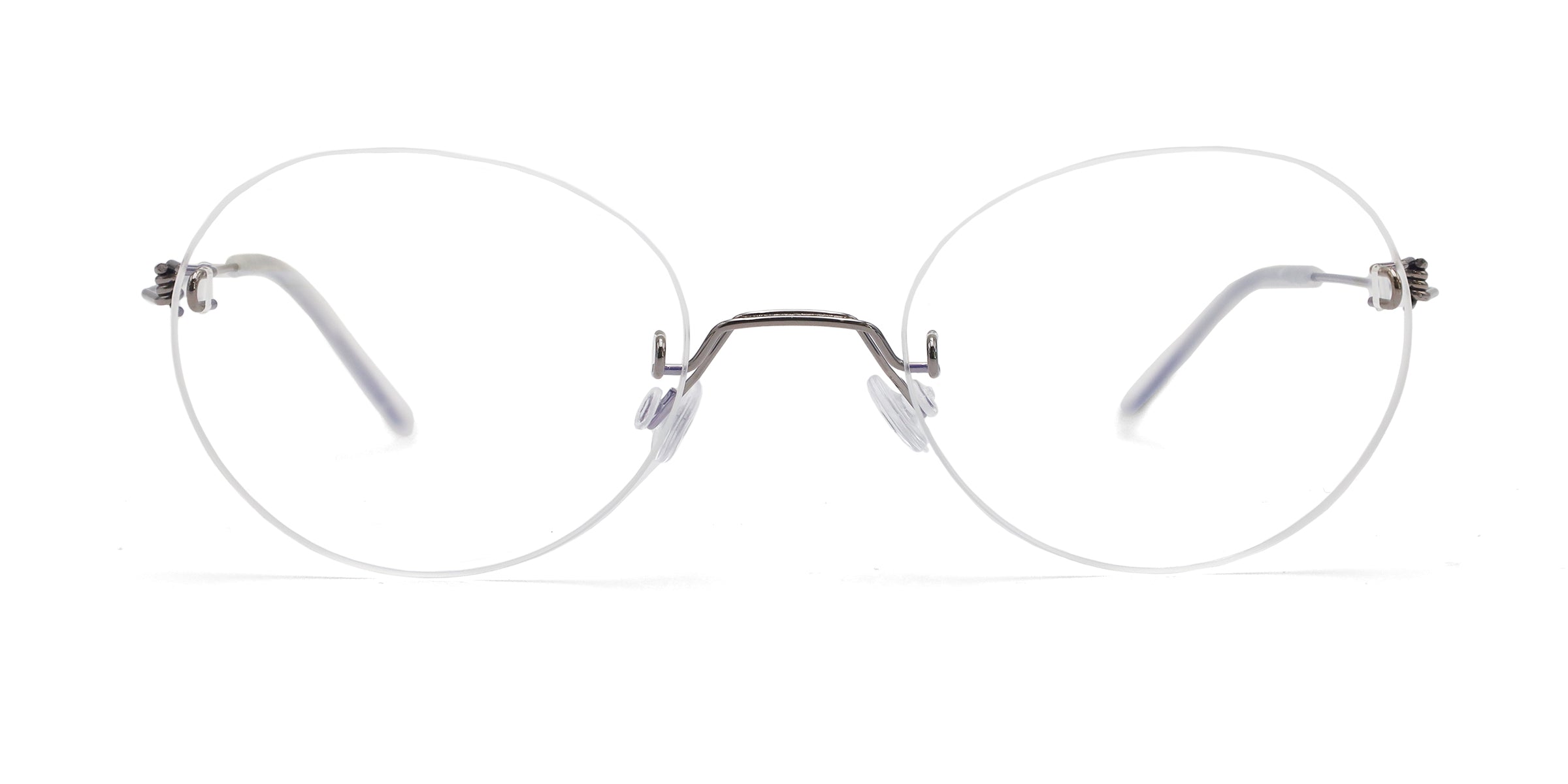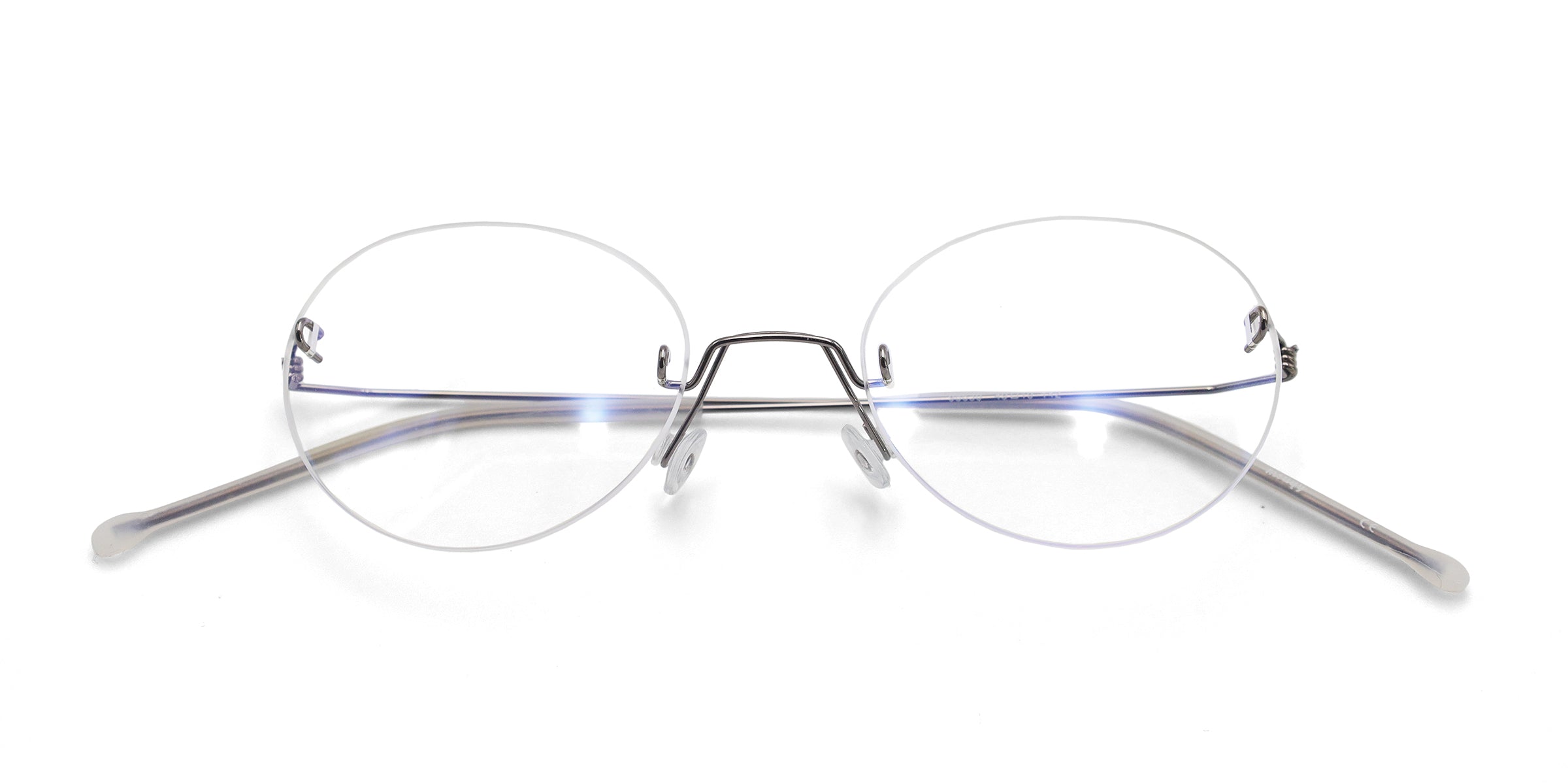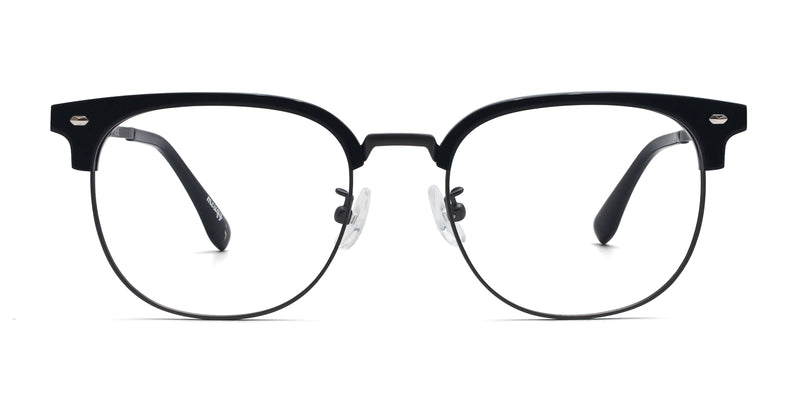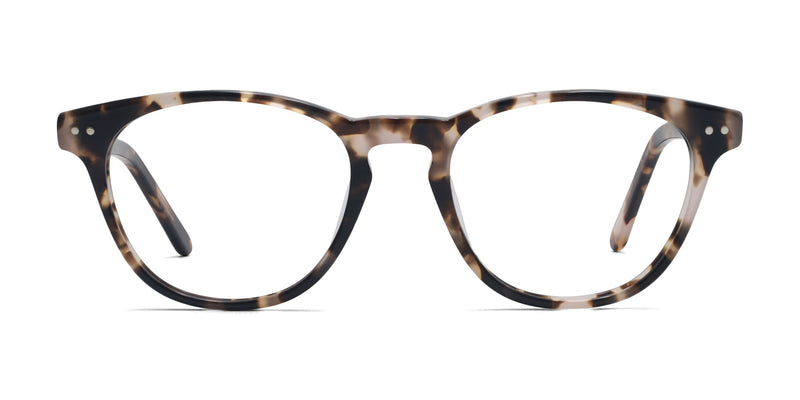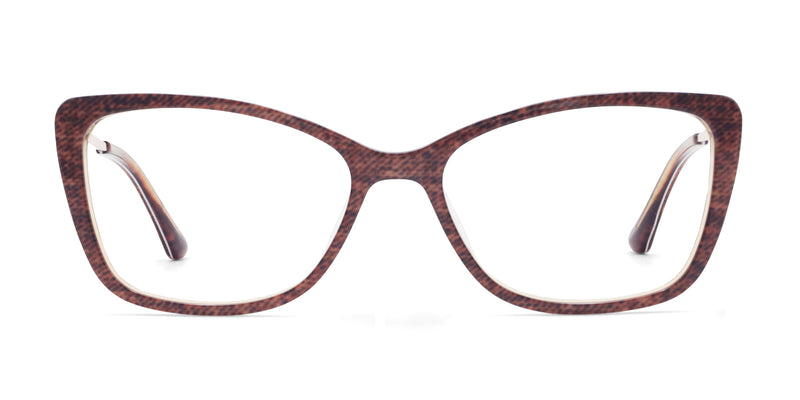Hard vs. Soft Contact Lenses: Which Are Better?
Welcome! Today, we’ll explore the differences between hard and soft contact lenses.
Whether you’re a glasses wearer considering switching to contacts or just want to know more about the options available, this article will provide some helpful insights.
So, let’s get started!
What are hard contact lenses?
Rigid and made of a firm material, hard contact lenses are sometimes called rigid gas-permeable (RGP) lenses.
They maintain their shape on your eye and let oxygen pass through to the cornea.
These lenses are smaller in diameter and can correct various vision problems, including astigmatism.
Hard contact lenses are smaller than soft lenses but can correct various vision problems like astigmatism. Source: Nature
Pros of hard contact lenses
- Rigid and durableHard contact lenses are tough and don’t break or tear as easily, making them longer-lasting.
- Provide clear visionLike any contact lenses, they help you see things more clearly, improving your overall vision.
- Suitable for correcting astigmatismThey maintain their shape on the eye and create a tear layer between the lens and the astigmatic cornea. The tear layer acts as an additional lens to fully correct astigmatism. This layer remains stable and unaffected by lens rotation, which is helpful for those with irregularly-shaped lenses or corneas. This also enables the contact lens to focus only on correcting nearsightedness or farsightedness.
- Can be worn for a longer timeYou can wear them for longer without needing to replace them frequently. With proper care, they can last up to 2 to 3 years, unlike soft lenses that need to be replaced, daily, biweekly, monthly or yearly.
Cons of hard contact lenses
- Take time to get used toIt might take a while for your eyes to adjust to wearing hard contact lenses comfortably.
- Can be less comfy than soft lensesBecause they are rigid, some people may never get used to them and find them less comfortable to wear than soft lenses.
- More prone to dislodging from the eyeThey have a higher chance of accidentally coming off the eye, so you need to be careful when wearing them.
What are soft contact lenses?
As the name suggests, soft contact lenses are flexible and made of a soft, gel-like material.
They conform to the shape of your eye, making them more comfortable to wear.
Soft lenses are available in various types, such as daily disposables and extended wear options (biweekly, monthly, or yearly).
Pros of soft contact lenses
- Generally more comfortable to wearSoft contact lenses are soft and flexible, making them comfortable enough for all-day wear.
- Easy to adapt toThey tend to feel more natural on the eye, and most people can get used to them quickly without much discomfort.
- Available in various optionsDepending on what’s more convenient for you, you can opt for daily, biweekly, or monthly disposable lenses.
Daily lenses may be preferable for those who don’t wear contact lenses often, while monthly lenses are usually the most cost-efficient. - Less likely to dislodge from the eyeSince they conform to the shape of your eye, they’re more likely to stay in place, which provides you more stability during activities.
Cons of soft contact lenses
- Might not provide clear vision for certain eye conditionsIn some cases, soft lenses may not offer the same visual clarity as hard lenses, particularly for individuals with specific eye conditions such as astigmatism.
- Require more frequent replacementsSoft lenses need to be replaced regularly according to the recommended schedule to maintain eye health and prevent potential complications like irritation and inflammation.
- Can be more susceptible to tears and damageThey can tear or get damaged more easily if not handled with care and proper cleaning.
How can I choose between hard and soft contact lenses?
If you’re wondering which type of contact lens to get, here are some things you need to think about.
Personal preferences and lifestyle
Think about what matters to you.
If comfort is a top priority and you want lenses that are easy to wear, soft contact lenses may be the better choice.
On the other hand, if you value durability and sharp vision, hard contact lenses might be more suitable.
Advice from eye care professionals
As with all vision-related matters, don’t forget to consult with your eye care professional!
They know your eyes best and can provide personalized guidance.
They will consider factors such as your eye health, prescription, and any specific needs you may have to help you make the right decision.
Maintenance and care
Consider how much time and effort you’re willing to put into lens maintenance.
Soft lenses require replacing more regularly, while hard lenses need extra careful cleaning and disinfection.
Think about which option fits your lifestyle and commitment level.
Eye conditions and prescriptions
Certain eye conditions, like severe astigmatism, may require hard contact lenses for better vision correction.
If you have a complex prescription that goes beyond nearsightedness or farsightedness, your eye care professional will help determine which lens type can provide the best visual clarity.
Everyone’s eyes are unique, so what works for one person may not work for another.
The key is to find the right balance between comfort, visual clarity, and overall eye health.
Tip: always keep a pair of glasses handy
Even if you primarily use contact lenses, keeping a pair of glasses handy is always essential. Here’s why:
1. Give your eyes a break
Wearing contact lenses for extended periods can strain your eyes.
Having glasses allows you to give your eyes a break and let them breathe.
2. Comfort during eye irritations
Sometimes, your eyes can get irritated, dry, or itchy, and wearing contact lenses may only worsen the sensation.
While this may tempt you to rub your eyes, doing so can harm your peepers.
By having glasses ready, you’re less likely to rub your eyes and can give them the instant rest and relief they need.
3. Convenient backup
Accidents happen, and contact lenses can sometimes get lost or damaged.
Having a spare pair of glasses ensures you’ll still be able to see clearly while you sort out a replacement for your contacts.
4. Quick and easy mornings
Let’s face it, putting on contact lenses can take time and effort in the morning.
And you can’t just sleep with contacts in. With glasses, you can simply slip them on and be ready to go without hassle.
Speaking of eyeglasses, here are some from Mouqy’s collection that might interest you.
For a comfortable, lightweight, and subtle pair, you can’t do much better than the Innocent eyeglasses.
It’s the perfect design for people who like their specs understated.
If you’re looking for a classic pair that will stand the test of time — both in terms of style and wear — this acetate tortoiseshell design is an excellent accessory to complete any look.
Plus, it’s comfy, too!
Fun without being loud and flashy, these browline frames have just the right amount of detail to draw attention to your eyes.
The frames are made from titanium, so they can handle wear and tear pretty well while being comfortably lightweight.
The best lenses should help you see clearly & comfortably
Knowing the differences between hard and soft contact lenses is key to seeing clearly and comfortably.
Think about what you like and need, then ask a trusted eye doctor for advice.
Just remember to have a pair of glasses on you at all times for safety and convenience.
All the best in your journey to find the perfect contact lenses!

Written by:
Phoebe Jade

